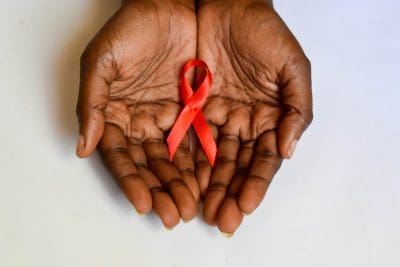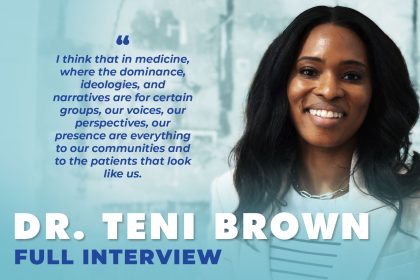In a candid Health IQ interview, Dr. Kanzoni Asabigi of Detroit Recovery Project addresses one of healthcare’s most significant barriers: the reluctance to discuss sexual health openly. This silence, he argues, contributes to rising HIV rates, particularly among Black women, and hinders effective prevention strategies.
Critical conversations that could save your life
The doctor’s office dialogue Dr. Asabigi emphasizes that what happens in the doctor’s office should be a judgment-free zone. “It’s you and your doctor. What you talk with your doctor is confidential,” he assures. He recommends preparing questions before appointments to ensure nothing gets overlooked during these crucial conversations.
Many patients hesitate to bring up sexual health concerns during routine check-ups, but Dr. Asabigi stresses that these discussions should be as normal as talking about blood pressure or diabetes. “Ask the doctor. In addition to everything they talk about diabetes, they talk about high blood pressure, asthma, talk about your sexual health,” he advises.
The partner discussion Perhaps even more challenging than medical conversations are discussions with potential sexual partners. Dr. Asabigi emphasizes that these conversations need to happen before intimate encounters, not after. “Be open with a partner asking the right questions about their status when it comes to HIV,” he urges.
He acknowledges that these conversations can feel awkward or uncomfortable but insists their importance outweighs any momentary discomfort. The stakes are simply too high to avoid these discussions.
The self-advocacy conversation Dr. Asabigi points out that patients often need to advocate for themselves in medical settings. “Sometimes you know it’s good to have questions prepared when you go to see your doctor so that you don’t forget what the questions you want to ask,” he explains. This preparation ensures that important health concerns don’t go unaddressed.
Breaking down barriers to communication
The stigma surrounding sexual health discussions remains a significant obstacle to prevention efforts. Dr. Asabigi notes that many people avoid talking about HIV “because most often it involves sex, and sometimes some people just shy away from talking about sex.”
This reluctance to discuss sexual health openly has real consequences. When people feel uncomfortable talking about sexual health, they’re less likely to:
- Request regular HIV and STI testing
- Discuss protection with partners
- Seek medical care when needed
- Stay informed about prevention strategies
The role of healthcare providers in facilitating dialogue
Healthcare providers play a crucial role in normalizing sexual health conversations. Dr. Asabigi emphasizes that providers should initiate these discussions rather than waiting for patients to bring up concerns. This proactive approach helps create an environment where patients feel comfortable discussing sensitive topics.
“A healthcare provider will have the right information and give it to you in the way that you can understand, but you have to ask the question,” he explains. This two-way communication is essential for effective healthcare delivery.
Building trust in medical relationships
Trust between healthcare providers and patients is crucial for effective sexual health care. Dr. Asabigi emphasizes that building this trust requires consistent, open communication and a non-judgmental approach. Healthcare providers must create an environment where patients feel safe discussing sensitive topics.
“Having sex at any age is healthy,” Dr. Asabigi notes, addressing another common barrier to open discussion. By normalizing sexual activity as part of overall health, providers can help patients feel more comfortable seeking advice and care.
The community impact of improved communication
When sexual health conversations become normalized, entire communities benefit. Dr. Asabigi points out that improved communication leads to:
- Earlier detection of HIV and other STIs
- Better treatment outcomes
- Reduced transmission rates
- Decreased stigma
- Improved overall community health
Creating lasting change
The path to better sexual health communication requires ongoing effort from healthcare providers, community leaders, and individuals. Dr. Asabigi suggests several strategies for improving these crucial conversations:
- Healthcare providers should routinely initiate sexual health discussions
- Patients should prepare questions before medical appointments
- Community leaders should model open dialogue about sexual health
- Educational programs should address communication skills
- Support services should be readily available for those seeking information
The digital age challenge
While social media and the internet have made health information more accessible, Dr. Asabigi warns about the potential for misinformation. “Not all the information that comes through the iPhone and text, and you know what they call X and WhatsApp and all that is accurate,” he cautions. This reinforces the importance of having reliable sources for sexual health information and maintaining open dialogue with healthcare providers.
The future of sexual health care depends on our ability to have these crucial conversations. As Dr. Asabigi demonstrates through his work at Detroit Recovery Project, breaking down communication barriers can literally save lives. By fostering open dialogue about sexual health, we create pathways to better health outcomes for individuals and communities alike.
This comprehensive approach to communication about sexual health represents a crucial step forward in public health. As we continue to face challenges in HIV prevention and sexual health care, the ability to have open, honest conversations becomes increasingly important. Dr. Asabigi’s insights provide a roadmap for improving these vital discussions and, ultimately, saving lives through better communication.















